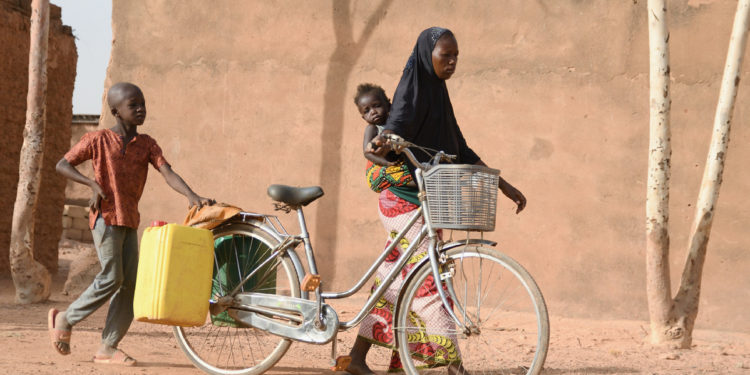Of that number, 156,500 are deemed severely malnourished, leaving them nine times more likely to die than well-nourished children, said the agency, which is also known as UNICEF.
James Mugaju, the fund’s deputy representative in Burkina Faso, attributed the high rate of malnutrition to the displacement of communities due to insecurity and to reduced access to livelihoods, healthcare and nutrition.
Burkina Faso, a landlocked country in West Africa, has over 1 million internally displaced people, 60 percent of whom are children, and 3.3 million suffer from acute food insecurity, the agency said.
Since 2018, security in the country has deteriorated due to the growing presence of armed groups. This has led to increased forced displacement, which in turn has exacerbated food and nutritional insecurity across the country.
In 2019, Burkina Faso experienced one of the fastest-growing displacement crises in the world, according to the World Food Programme. The country also suffered more jihadist attacks than any other Sahelian country that year, according to the International Crisis Group.
Over the past one and a half years, armed violence in Burkina Faso internally displaced 1 million people, the Norwegian Refugee Council said.
The country has also been experiencing harsh climatic conditions characterized by low and variable rainfall, land degradation, deforestation and desertification.
Eighty percent of the country’s 20.1 million population depend on agriculture for their livelihoods. More than 40 percent of its people live below the poverty line.
Pandemic impact
The situation has been worsened by the coronavirus pandemic, which has had a brutal impact on households and their ability to provide for the basic needs of children.
“Children are paying the highest price, facing a triple crisis: security, health and food,” Mugaju said.
Gorom-Gorom town in the Sahel region and the Barsalogho site for internally displaced people in the Centre-Nord region are the worst affected, where children under five suffer from acute malnutrition.
The UNICEF is calling for intensified efforts to ensure the continuity of nutrition services to ensure children in urgent need are reached.
“This is essential because good nutrition for children, from their first days and months, protects them from disease and infection, and helps them to recover when they fall ill,” Mugaju said.
The children’s fund, together with partners, is treating malnourished children in the country as well as delivering therapeutic foods such as milk to treat acute malnutrition.
More than 52,600 cartons of therapeutic food have been delivered to healthcare facilities and 51,685 children with severe acute malnutrition have been treated since January.









